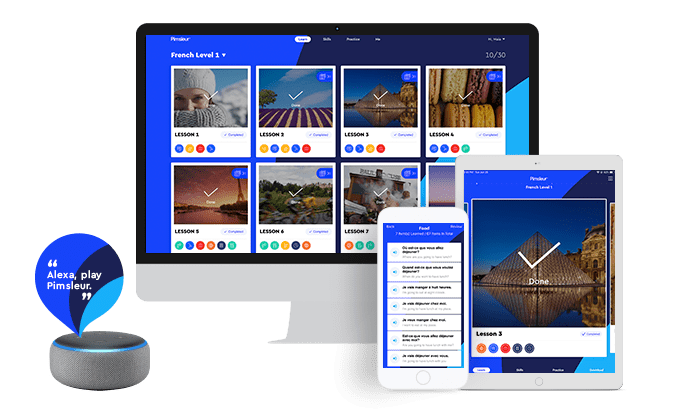
Living Abroad in France Is Often Exactly Like Emily in Paris—Except When It’s Not.
I’ve got a confession: I binged Emily in Paris and loved it.
Yes, I know that the show’s reviews weren’t very kind. One reviewer suggested that its depiction of French culture was “simplistic” with a “paper-thin protagonist.” Not wrong.
Another said, “Understand, these are tough times, and vacuous, fluff-headed, indulgent, fanciful entertainment has its place. But Emily in Paris is pretty far from entertaining.”
Ouch.
Still, I really did love it. There’s something magical about the show. It’s beautifully shot and Paris gleams in it like a diamond. But most of all, it all but demands you to ask the question, “What if I had the opportunity to pick up and move to France? What would my life be like?”
I’m confident that imagining a life like Emily’s is the major draw of the show for most people.
For me, it was nostalgia. It brought me back to the year I spent in Bordeaux in the southwest of France. Some of Emily in Paris was bang on: exactly like my experience. And some of it was way off.
If you’re considering moving to France—or somewhere else—this show can help. But be aware that it’s not exactly on point. So indulge me in a little reminiscing of my year strolling along the Garonne and let me share with you how Emily in Paris is exactly like real life… and what it gets wrong.
14 Ways Emily in Paris Is Exactly Like Real Life…and Not
1. Yes, you won’t understand all cultural moments.
Emily is constantly brushing up against the incomprehensible (to her) French culture. That will happen to you, too.
It will be the little things. You’ll know how to greet people (Bonjour! Ca va?), but you’ll never know if you’re supposed to kiss them on the cheek, how many times, or whether you’re supposed to do it every time you see them.
You’ll know that vous is the formal version of “you” and tu is informal… but you’ll constantly try to understand who you should use them with. Is this person your friend? How close is your relationship? Are they older than you? By how much? Does it matter?
2. No, people generally aren’t rude.
Luckily, it won’t matter if you mess up little cultural things because people in real life are very forgiving—unlike the people Emily meets.
We’re introduced to Emily’s landlady, boss, and co-workers as extremely rude until Emily shows she can be valuable. Even then, throughout the series, her boss continues to be unhappy—and sometimes mean.
This plays off of a stereotype of French people that characterizes them as rude. In my experience, it’s simply not the case.
To be fair, if you’re a tourist in the middle of Paris, people may be frustrated that you (and the millions of other tourists like you) have taken over their city. And also, there does seem to be a particular type of Parisian that Justine Leconte calls “le snob Parisian.”
But as soon as you go outside that particular city, you’ll find the normal, generous, very kind, and generally not frustrated French people.
3. Yes, you’ll find work, but no, not easily.
Emily is fortunate enough to have a great job at a marketing agency. Like her, you can find work if you move to France.
But unless your French is great, it won’t be as simple as it was for Emily, and you’ll have limited options. If you can’t speak French, you’ll probably be limited to teaching English.
And even then, the show glosses over a ton of bureaucracy. It took weeks for me to get a French bank account and months to get all the different numbers I needed to actually work in France. Be prepared for lots of complicated paperwork.
4. Yes, you’ll feel uncomfortable because you won’t understand people at parties.
Early in the series, Emily follows a friend to a party. It looks like fun: lots of fun people, good music… but Emily finds it difficult to connect with others because she doesn’t speak French.
That’s absolutely consistent with my experience. While parties can (and still are) fun even without a common language, it can feel isolating to not speak the same language as everyone else.
Luckily, it will get better with time. And certainly, the more you put yourself in social situations, the better it will feel.
5. No, there won’t be free champagne at those parties.
Emily’s parties always seem to feature free champagne. It’s a nice idea, but not at all like real life.
… except this one time, a friend of mine and I were roaming the streets in Monaco and came upon an opening for an art gallery. We were dressed nicely and wandered in. And we definitely did manage to enjoy a few free glasses of champagne.
Still, it’s rare. Usually, you have to bring your own wine (luckily, it’s cheap and still delicious.)
6. Yes, you’ll have trouble at shops, and yes, people will help you.
In the show, Emily often has difficulty operating in regular French life. In one scene in particular, she struggles to communicate with a lady at a flower shop. A stranger, who ends up becoming her friend, helps her.
My whole life in France was struggling to communicate with people in shops. But it worked every time. Sometimes, like with Emily, another person helps you out. Other times, you just engage in a fun moment of miming with the shopkeeper. Either way, you always find that you’ve gotten what you need.
7. Yes, you will make friends but no, not that fast.
Emily makes friends quickly with her neighbor and others. Sure, that will happen: you’ll meet people and develop close relationships. But it may not be as quick as you’d like—or as Netflix would have you believe.
Unless you’re at University or you already have some acquaintances in France, it’s a challenge to make new friends—especially with locals.
But you can do it; you just have to do the work: go to meetups, join a social group or club, or connect with co-workers. Make an effort to create a social circle, and you’ll eventually do it.
8. Yes, you’ll especially gravitate to others who speak your language.
Early in the series, Emily meets and befriends a Chinese woman named Mindy. They bond primarily because they both speak English and have a perspective on Paris as foreigners.
This is very true—making friends with other non-locals is much easier.
Partly I think this has to do with the language—it’s easier to make friends in your native tongue. But also, it’s practical: locals already have their own lives and friends. Other travelers don’t; they’re more interested in creating new relationships, so they’re more open to it.
For example, when I lived in Bordeaux, my first friends were a Canadian woman and a woman from Northern England who worked in the same school I did. We were the only native-English speakers in the school, and being foreigners gave us much in common.
I then made friends with a guy from Indonesia and another from Angola. Again, we bonded over not being French. And while both of them spoke French much better than I did, they still had much to say about the language’s difficulty.
Eventually, I was able to make friends with locals, too. It just took a little longer.
9. No, your neighbor won’t be a super attractive and highly skilled chef who will make you omelets whenever you like.
Sorry, that one is just Netflix fantasy. But there’s no harm in dreaming, right?
10. Yes, the food really is that good.
There’s a scene in which Emily tries a pain au chocolat for the first time, and she has one of those “this is to die for” moments.
This might seem exaggerated, but I promise it’s not. If you’re living in France, you’ll almost certainly have several of those moments. I literally had a pain au chocolat every morning for a year.
Here’s another time I had this happen: the first time I bought Camembert. It was €2.50 at the grocery store and it was so soft it was like a dip. Combined with the €1 baguette… mon Dieu. I barely ate anything else.
11. No, you won’t get 400 new followers daily on Instagram.
Emily rules Instagram. In one scene, she posts a photo of herself with some roses and gets 400 new followers.
Sorry, that’s not how it works. Your friends will appreciate all your Instagram photos, but France won’t automatically make you an influencer.
12. Yes, people will compliment you on your French.
There’s a moment when Emily’s French improves, and a friend comments on the progress.
This actually happens. If you take the time to learn and use French, you will improve. And when you do, people will notice and compliment you. Like Emily, you really will feel proud of yourself.
Then, one day, if you get good enough, they’ll stop complimenting you and just talk to you the same way they talk to everyone else. And that’s when you’ll feel the proudest.
13. No, your clients won’t buy you lingerie.
There’s a scene where one of Emily’s clients, who is married and having an affair with Emily’s boss, sends Emily lingerie as a gift. Emily, of course, thinks that this is inappropriate.
And it is inappropriate.
It’s inappropriate in any culture, including French culture. Sure, you might find that working in France leads to some uncomfortable intercultural moments. But having clients flirt with you and send you lingerie is not something you’ll likely have to worry about.
And if it happens, you can rest assured knowing that your French colleagues will be as outraged as you.
14. No, learning French “on the plane” won’t work.
When Emily begins her career in the French marketing office, she starts by acknowledging her lack of the language: “First, let me apologize for speaking English. I did Rosetta Stone on the plane, but it hasn’t kicked in yet.”
Her colleagues look at her in disbelief, and her lack of language annoys them… but Emily manages to demonstrate her competence throughout the series despite her lack of language skills.
That’s not how it works in real life.
Unless you find a company that does business in English—a large multinational or an English school—you’ll need to speak French. And you can’t just learn it on the plane; it will take time.
That’s the bad news. The good news is that you can start learning French now. And while you probably can’t get fluent in a month or two, you probably can get conversational.
Daydreaming or Preparing for Living Abroad in France? Learn French!

The best way to prepare for living abroad right now is to learn the language. That way, you’ll show up much better prepared than Emily was.
How?
Well, you could start by watching Emily in Paris… in French.
And if you’re not quite there yet, give Pimsleur a shot.
1 Comment for "How Emily in Paris Is Exactly Like Real Life… and How It’s Not"